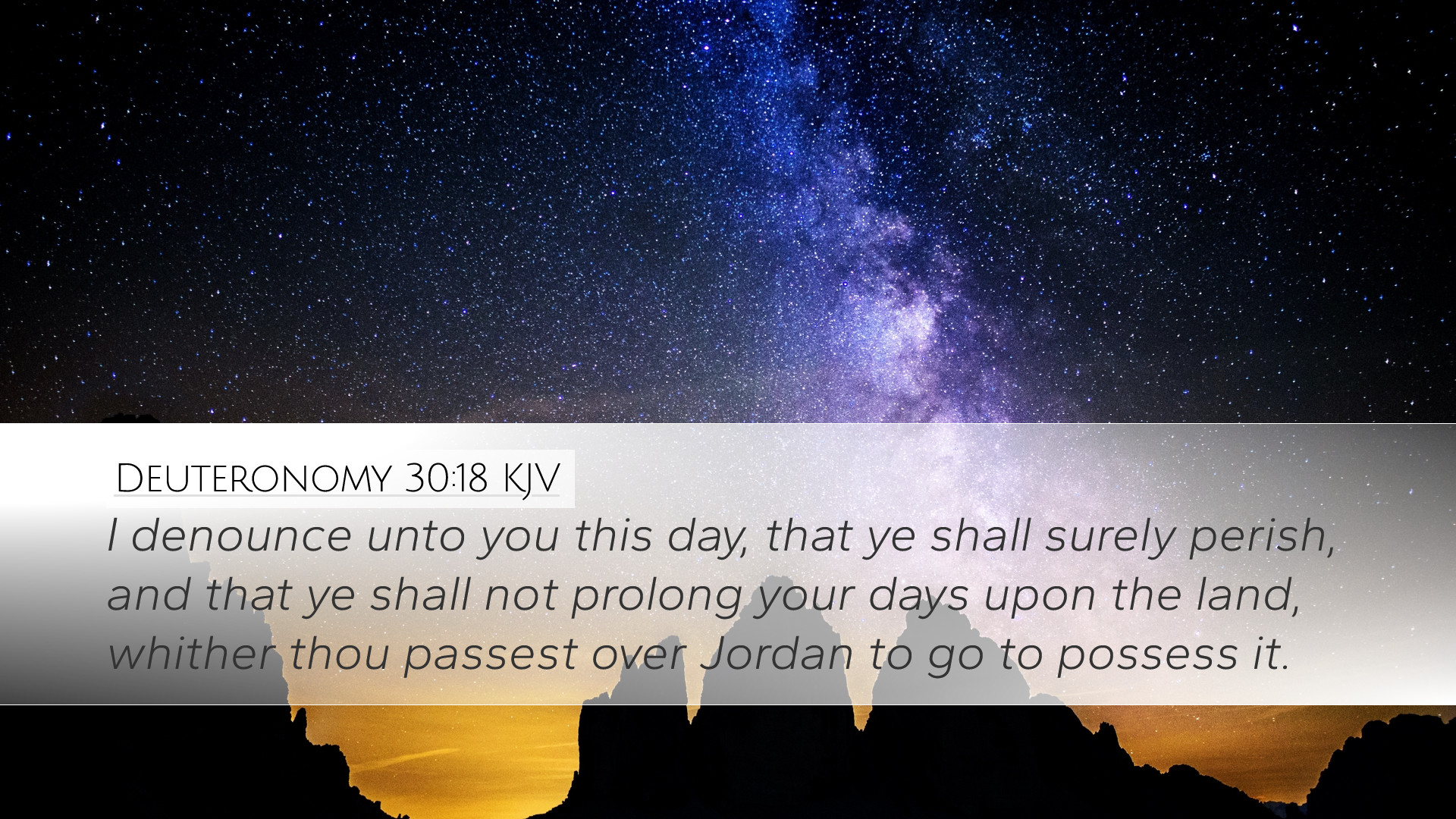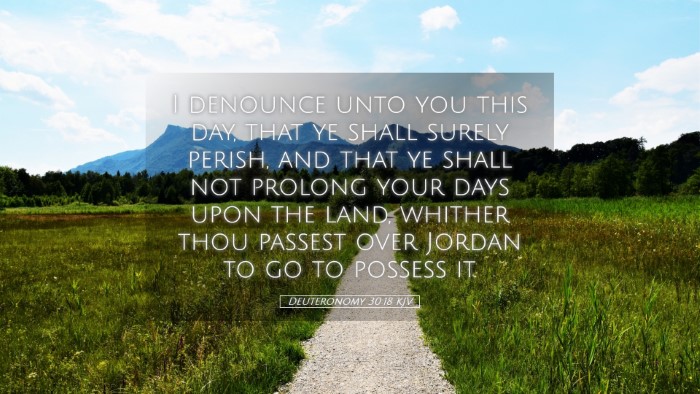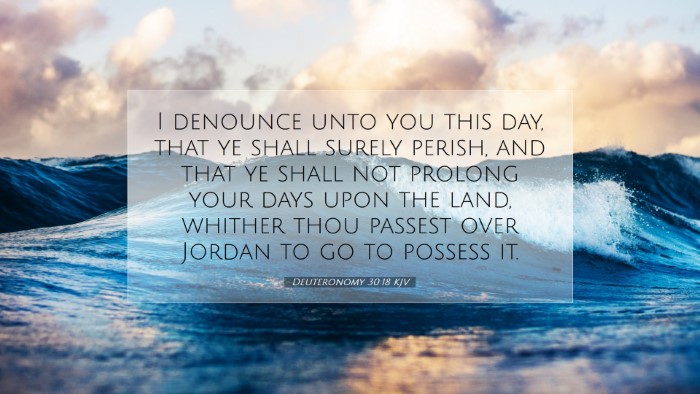Commentary on Deuteronomy 30:18
Verse: "I declare to you today that you will certainly die if you turn away from the Lord; if you choose not to listen to his commands, but to be led astray and serve other gods."
Introduction
Deuteronomy 30:18 is a pivotal verse within the larger context of Moses' farewell address to the Israelites. This verse encapsulates the grave consequences of turning away from God, emphasizing the importance of obedience to divine commandments. This commentary synthesizes insights from renowned public domain theologians, offering rich theological reflections for pastors, students, and scholars.
Moses' Warnings and Calls to Obedience
Matthew Henry highlights the dual nature of blessings and curses presented to the people. He suggests that Moses lays before the Israelites a definitive choice—life or death, blessing or curse. The stark warning in this verse serves as a reminder of the seriousness of covenant fidelity. Henry posits that God's commandments are not merely suggestions; rather, they encapsulate life itself.
Albert Barnes reinforces this view by contextualizing the verse within the broader framework of Israel's history. He notes that the choice presented is not simply academic but existential, underpinning Israel's entire relationship with God. Failure to adhere to God’s statutes would result in severe consequences—not merely as a punishment but as a natural outcome of disobedience, leading to spiritual death.
The Concept of Spiritual Death
Adam Clarke provides a critical exploration of what is meant by 'dying' in this context. He posits that the term represents not just physical demise but a complete spiritual separation from God. The gravity of this statement is profound; it illustrates that straying from God's path leads to a decay of the soul and an alienation from the source of life.
Moreover, Clarke emphasizes that turning to other gods—as mentioned in the verse—implies a rejection of the true God and an invitation for grave spiritual harm. Such idolatry is not merely an external act but leads to internal desolation.
Choices and Their Implications
In delving deeper into the ramifications of choices made, Matthew Henry notes that Israel's history is riddled with examples of both obedience and disobedience. Each choice significantly affects their spiritual journey and covenant relationship with God. The verse serves as a clarion call to the Israelites to weigh their options carefully, aware that their decisions carry eternal consequences.
Albert Barnes elucidates further that the choice laid before the people is an acknowledgment of human agency. God does not compel; instead, He invites His people to choose life through obedience. This intrinsic freedom to choose is a core tenet of the faith and illustrates profound respect for individual volition.
The Role of Obedience and Faithfulness
The central theme in Deuteronomy 30:18 revolves around obedience to God’s commands. Adam Clarke reinforces the notion that genuine faith manifests through adherence to God's laws. If the Israelites were to ignore His commands and pursue idol worship, they would inevitably meet with spiritual death.
This premise invites deeper reflection on how contemporary believers understand obedience in their own faith journeys. Are modern expressions of faith still reflective of this biblical imperative? Clarke suggests that true piety includes both belief and practice—where the two must coexist to lead one towards the fullness of life promised in the covenant.
God’s Justice and Mercy
Matthew Henry brings a balanced perspective, emphasizing that while God's warnings are severe, they emerge from His perfect justice and mercy. The warnings do not come from a place of spite but rather from a desire for His people to turn towards life. Henry highlights the importance of viewing divine admonition as an act of love, urging His people to avoid paths that lead to destruction.
Albert Barnes adds to this by elucidating that the potential for repentance is ever-present. God’s desire is for the restoration of relationships rather than the condemnation of His people. This dialectic of justice and mercy forms the backbone of the biblical narrative—one that modern theologians continue to explore.
Conclusion
In summarizing the insights gained from this commentary on Deuteronomy 30:18, it becomes evident that the verse serves as a profound testament to the nature of humanity's relationship with God. The freedom to choose, the solemnity of consequences, and the unfolding of God's redemptive work are woven intricately within the fabric of this verse.
Pastors, students, theologians, and Bible scholars are invited to engage with this verse not only as an ancient text but as a living call to reflect on their own spiritual journeys. As they choose paths of faithfulness and obedience, they may uncover the true joy and life that God promises to those who seek Him earnestly.


